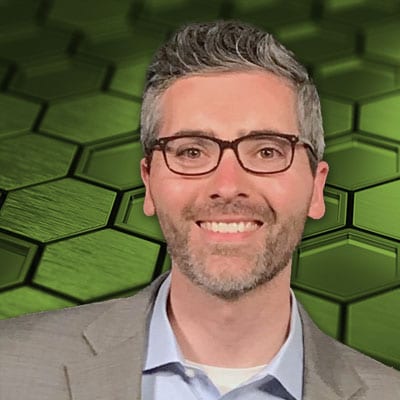october 2021


Leader to Leader
Bringing Value to Security
By Burke Brownfeld, Contributing Writer

StockRocket / iStock / Getty Images Plus via Getty Images

For my first installation of Security’s Leader to Leader column — for which I will interview security leaders across industries on their careers, their challenges and their views of risk and resilience every few months — I was fortunate to spend time with Shelley Benoliel, Head of Physical Security & Business Resilience at Zoom Communications, to talk about her career and her approach to the security industry.
Benoliel recently took the helm at Zoom as the Head of Physical Security & Business Resilience to build out the physical security and business resilience program. Benoliel has made her mark on the security industry, including oversight of security for various U.S. embassies across eastern Europe and Central Asia, leading protective details for the U.S. Department of State Diplomatic Security Service (DSS), and developing security and resilience programs at three major corporations. She continues to be a pioneer as she builds new programs for Zoom.
Burke Brownfeld (BB): Your career started in the public sector, and you successfully made the transition from being a federal agent to protecting some of the world’s most recognizable brands. How was it for you when you transitioned from the public sector to the private sector?
Shelley Benoliel (SB): I found the transition super easy. I went to work for a known entity (IBM) with a team that operated along the same vein as the Dignitary Protection Division at DSS. I found the culture to be familiar in that the private sector, especially the one I transitioned into, had so many parallels to the State Department. Many international companies operate much like an embassy (HQ) and consulate (regional satellite offices) model.
BB: In the security industry, we often think a lot about degrees and certifications. What is something about you that wouldn’t show up on your resume, but that you feel has helped you succeed in your career?
SB: My ability to build relationships and strong teams is something that has helped me in my career. In the government, I didn’t really have the chance to build my team because everyone on the team is assigned by a panel. In the private sector, it comes down to identifying my personal strengths, recognizing gaps and hiring for those gaps. Our team just did an exercise where we all took the “Strengths Finder Assessment.” I highly recommend it. The assessment validated and further explained some of the strengths I’ve become known for. I have a knack for recruiting diverse talent; and by that, I mean building a team of individuals with unique talents and backgrounds, which not only complement their teammates but also complement the needs of the business.
“The security function must have connective tissue across all security functions and business units.”
— Shelley Benoliel, Head of Physical Security & Business Resilience, Zoom
BB: You have overseen global security programs for several huge global brands. As you know, security often gets a reputation for being a “cost center” to the business. Based on your experience, how have you approached the topic of adding value to the business?
SB: Understanding and demonstrating the “why” is important. You really must understand what’s important to the company. What’s keeping the leaders up at night? What are the top three risks that they want to solve? What’s the risk to the customers? We’re doing this right now because we have several massive programs to build, so we’re really focusing on communicating cross-functionally to ensure we’re all rowing at that same pace and in the same direction, and are clear on what we’re solving for but also calling out each other’s blind spots. The overall strategy is to protect while enabling the business to move forward at the expected pace.
BB: From your perspective, what do you think the future of the corporate security function looks like? What would you like it to look like?
SB: The security function must have connective tissue across all security functions and business units. In our case, we’re focusing on being “customer first” as our success factor, and concentrating on enabling Zoom to “Deliver Happiness.” It’s not just about security. The present and future of corporate security require security leaders to be business persons with a security background.
BB: You have spent much of your career in male-dominated industries. How do you approach the topic of diversity, particularly when you are recruiting and hiring for your security teams?
SB: I’ve always considered myself a security professional amongst peers. As for my approach, hiring diverse talent starts well ahead of the recruiting stage. Build a diverse network and keep those conversations fresh. I remember talking to a few colleagues from my extended network this year when recruiting for a role. They paid me a huge compliment about how I took the time to push outside my immediate network in order to foster knowledge of upcoming roles and seek out those with diverse thoughts, experiences and backgrounds. I draw in candidates who don’t have a traditional security background. You can’t be passive in your search. You can’t just say, “This is who applied.” You have to work a little harder as a leader to build the candidate pool.
In terms of building a “dream team,” first and foremost, I don’t want the same patterns of thought. I don’t want the same patterns of experience and background. I want people who are challenging the status quo and who feel comfortable challenging me. You have to consider their entire background. I look for what else they bring to the team that's not on their resume.
BB: For those readers who aspire to be a Chief Security Officer (CSO) one day, what would your advice be?
SB: I think it goes back to knowing the business. If you’re looking for a role and you are considering a role in a company, you’ve got to know the business, and you have to have some connection. It’s making sure you’re the right person for that company, and making sure that company is the right fit for you. The second piece of advice would be to ask the hard questions. Ask the questions that are meaningful to you and that will make you bring your best self to work. If you’re looking to be promoted, you’ve got to be knocking it out of the park. Understand the business trajectory and build at pace to enable the business mission and vision.
About the Columnist
Burke Brownfeld has been in the security industry since 2004. He has held several roles throughout his career. Currently, Brownfeld serves on the Physical Security & Business Resilience Team at Zoom, where he oversees Zoom's global data center security program. Previously, Brownfeld served in leadership roles in the public and private sector, ranging from being a Director in Visa Inc.'s Corporate Security program, leading corporate security for the Washington D.C. Metro system, and overseeing regional security for the U.S. Peace Corps in Latin America. (Editor’s note: Brownfeld completed this interview with Benoliel before assuming his position at Zoom, and the content of this article is completely independent of his current position. Opinions expressed here are not a reflection of the employer.) Columnist image courtesy of Brownfeld
october 2021 | securitymagazine.com



